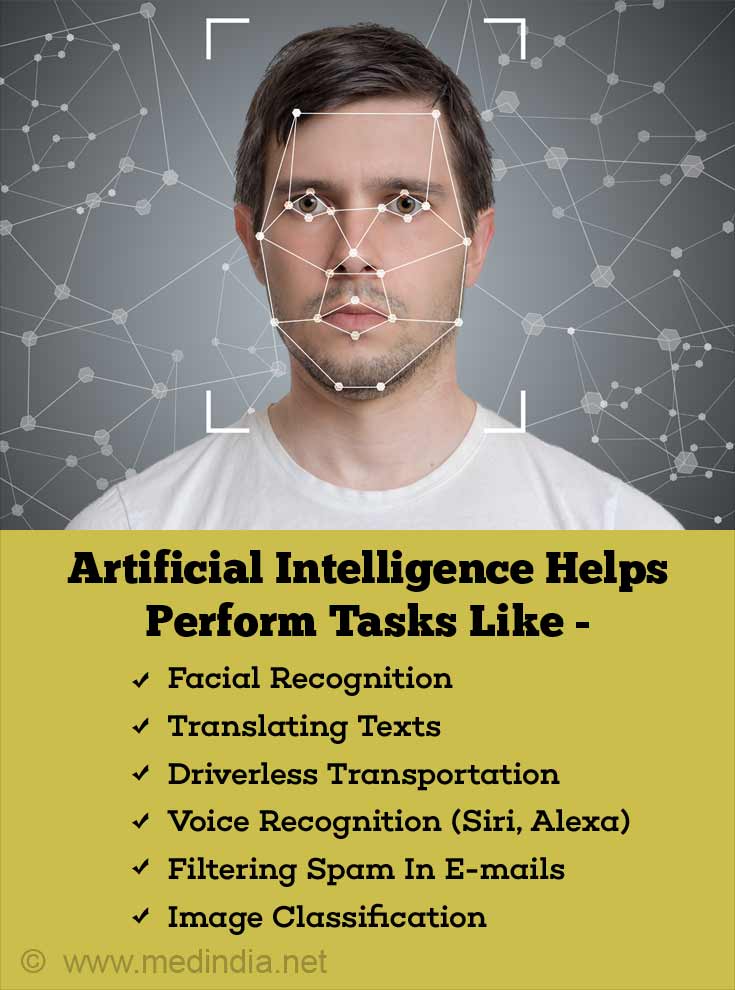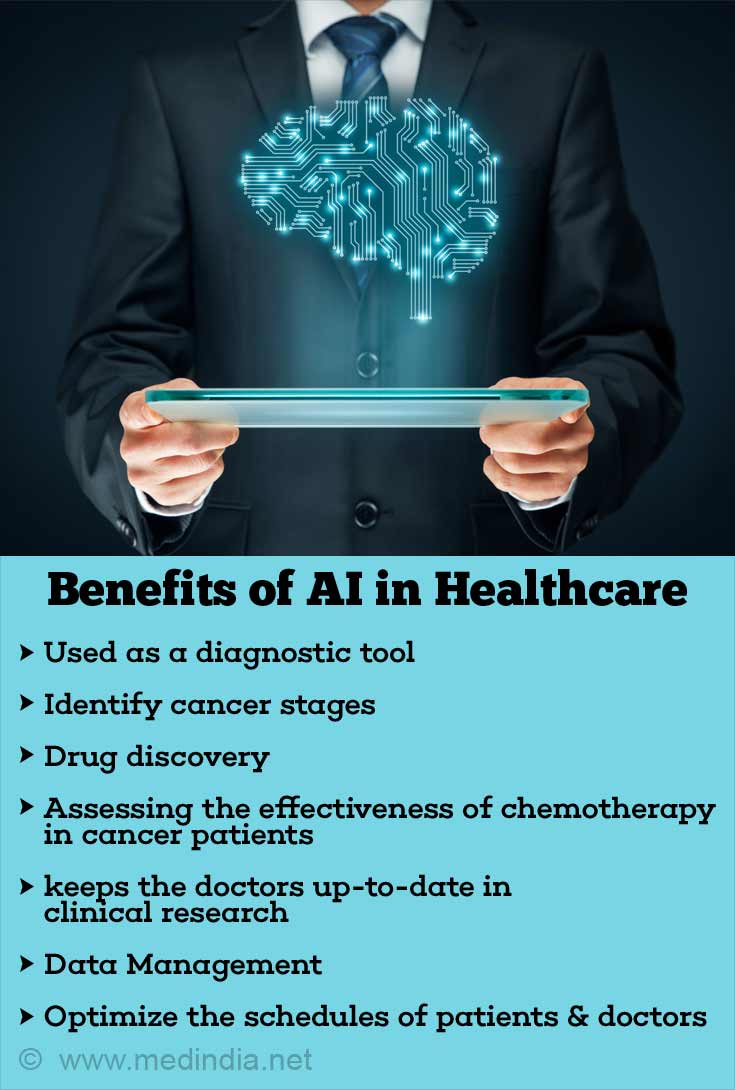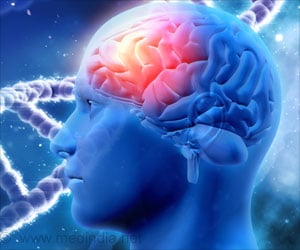- Bennett CC, Hauser K. Artificial intelligence framework for simulating clinical decision-making: A Markov decision process approach. Artif Intell Med. 2013;57(1):9-19. - (doi:10.1016/j.artmed.2008.07.017.)
- The Lancet. Artificial intelligence in health care: within touching distance The Lancet, Volume 390 , Issue 10114 , 2739
- Ramesh AN, Kambhampati C, Monson JRT, Drew PJ. Artificial intelligence in medicine. Annals of the Royal College of Surgeons of England. 2004;86(5):334-338 - (doi:10.1308/147870804290.)
- Patel VL, Shortliffe EH, Stefanelli M, et al. The Coming of Age of Artificial Intelligence in Medicine. Artificial intelligence in medicine. 2009;46(1):5-17 - (doi:10.1016/j.artmed.2008.07.017.)
- Furmankiewicz M, Soltysik-Piorunkiewicz A, Ziuzianski P. Artificial intelligence systems for knowledge management in e-health: the study of intelligent software agents. Latest Trends Syst. Vol.II.551-556. - (doi:10.1016/j.artmed.2008.07.017.)
- Hamet P, Tremblay J. Artificial intelligence in medicine. Metabolism. 2017;Vol.69:S36-S40. - (doi:10.1016/j.artmed.2008.07.017.)
- Jiang F, Jiang Y, Zhi H, et al Artificial intelligence in healthcare: past, present and future Stroke and Vascular Neurology 2017;svn-2017-000101. doi - (10.1136/svn-2017-000101.)
- Khan OF, Bebb G, Alimohamed NA. Artificial intelligence in medicine: What oncologists need to know about its potential and its limitations. Oncolex. 2017;16(4):8-13. - (10.1136/svn-2017-000101.)
- Gawad J, Bonde C. Artificial Intelligence: Future of Medicine and Healthcare Biochem Ind J. 2017;11(2):113. - (10.1136/svn-2017-000101.)
- Jain D. 12 artificial intelligence startups revolutionizing healthcare in India. Aug 31, 2017. Cited Jan 26, 2018. - (10.1136/svn-2017-000101.)
- Altman R. Robotics: Ethics of artificial intelligence – Distribute AI benefits fairly. Nature. 2015;Vol.521:417-418. - (10.1136/svn-2017-000101.)
- Graves PR, Haystead TAJ. Molecular Biologist’s Guide to Proteomics. Microbiology and Molecular Biology Reviews. 2002;66(1):39-63 - (doi:10.1128/MMBR.66.1.39-63.2002.)
- Clish CB. Metabolomics: an emerging but powerful tool for precision medicine. Cold Spring Harbor Molecular Case Studies. 2015;1(1):a000588 - (doi:10.1101/mcs.a000588.)
- What is genomics - (http://www.genomic.org.uk)
- JASON. Artificial intelligence for health and healthcare - (https://www.healthit.gov/sites/default/files/jsr-17-task-002_aiforhealthandhealthcare12122017.pdf)
- Glaser J. Understanding artificial intelligence in health care - (https://www.aha.org/news/insights-and-analysis/2018-01-23-understanding-artificial-intelligence-health-care)
What is Artificial Intelligence?
Artificial intelligence or machine intelligence is the intelligence shown by machines as opposed to natural intelligence (NI) shown by human beings and other animals. Artificial intelligence (AI) enables machines to learn from experience, adjust and respond to new inputs and make human-like decisions to potentially improve the user experience and outcome of any task.
Deep Learning Technology in AI
Deep learning is a method used to train a computer to perform human-like tasks, such as speech recognition, identifying images or making predictions. Instead of a set of predefined programs computers normally respond to, deep learning establishes basic parameters about the data and gradually trains the computer to learn to respond on its own by recognizing patterns and processing the information entered at several levels.
Artificial intelligence research in medicine began in the 1970s. Today deep learning technology in AI mimics the human brain’s networks to perform tasks and make decisions like humans.
The results are out there for us to see - translating texts, driverless transportation, voice recognition (Siri, Alexa), filtering spam in emails, facial recognition and image classification.

Driverless Transport - An Example of What AI Can Potentially Achieve
On January 24, 2018, the first driverless bus was operated on the streets of Stockholm, Sweden, as part of a trial to see how technology could operate buses in real traffic conditions. With a capacity of 12 passengers, the bus runs at a speed of 20 kilometers per hour ( kmph) on a pre-recorded route with the help of sensors and GPS. There is no driver but a bus conductor is present to take over in case of an emergency. And unlike regular buses, there is no steering wheel!!! Welcome to the role of artificial intelligence (AI) in today’s world!
History of AI
- You will be surprised to note that AI has been around for sometime. Well, the idea of AI first came into existence in 1956 at a conference in Dartmouth College when John McCarthy defined AI as “the construction of machines, which can be said to be similar to the human manifestations of intelligence”.
- Subsequently, in 1978, the journal Artificial Intelligence published a special issue on Artificial Intelligence in Medicine (AIM).
- In 1980, the American Association for Artificial Intelligence created a subgroup on medical applications called AAAI-M.
- Artificial intelligence has benefited from improved data handling (collection, sorting and retrieval) and improved microprocessor speed (currently, Intel is marketing a microprocessor for home computers, which performs 1 trillion operations in 1 second!).
- It was in 2010 that the concept of deep learning revolutionized AI.
What is Machine Learning (ML) and Natural Language Processing (NLP)
There are 2 types of AI devices to analyze data.
- One of them, machine learning (ML), analyzes structured data found in genetics, imaging and electrophysiological data. This information helps to predict the outcome of disease.
- The second type of AI device, natural language processing (NLP) is effective in processing unstructured data, such as medical journals or clinical notes (analog data) and converting it into structured data that acts as a support for ML data.
How Artificial intelligence Can Aid Healthcare?
Imagine going to a hospital and passing through an automated scanner that will perform your medical examination to assess your symptoms before determining the course of treatment. There is no human physician in sight. It sounds futuristic but AI is certainly making inroads in the field of medicine.
Potential Benefits of AI in Healthcare
- Artificial neural networks, such as GoogLeNet and AlexNet were used effectively as diagnostic tools to accurately distinguish between tuberculosis chest X-ray images and normal images, following pretraining.
- Similarly, neural network algorithms have been able to accurately grade gliomas, cervical and breast cancers as well as identify cancer stages.
- Artificial intelligence algorithms were found to be superior to conventional statistical analyses in identifying the recurrence risk in breast cancer, morbidity following head and neck squamous cell carcinoma surgery or post-surgical complications in non-small cell lung cancer.
- In the prolonged expensive process of drug discovery, AI can be a time-saving tool. The DeepVS neural network was able to accurately identify a target receptor that was the correct fit for a study compound.
- Targeted nanorobots are novel systems for drug delivery.
- Similarly, AI has shown to be effective in determining prognosis by assessing the effectiveness of chemotherapy in breast cancer patients (e.g. RECIST 1.1) or in determining sites for radiation treatment in cancer.
- It is also interesting to note that AI can provide feedback to physicians who interact with patients by indicating overlooked concerns or cues in conversations to improve diagnosis and management.
- A.I. assistants could keep doctors up-to-date in clinical research by scanning through millions of pages in a matter of seconds.
- On an institutional level, A.I. could play a critical role in data management – collection of data, storing it, normalizing it, tracing its lineage. This will revolutionize the existing healthcare system.
- AI can help reduce waiting time by optimizing the schedules of patients as well as doctors.
- Artificial intelligence can also decipher the trends adopted by patients in health forums (e.g. cancer forums).

How is AI Transforming Healthcare?
There is a lot of excitement and hype about AI in healthcare. In India, AI is still in its infancy. In 2016, $113.45 million was invested in AI in Indian healthcare in the form of several startup companies. According to a recent study in the US, the AI revolution in healthcare is genuine due to
- Easy access and convenience (within your home) of certain health applications
- Smart phones provide access to health monitoring applications and provide large datasets for AI use
- Finally, patients are getting frustrated with the existing medical system inadequacies and prefer innovations that personalize care
Limitations of AI in Healthcare
There have been setbacks for AI in healthcare most notably with the withdrawal of 2 big projects, Google’s DeepMind and IBM’s Watson.
- Google DeepMind partnered with the National Health Service (NHS) in United Kingdom but ran into trouble over patient confidentiality issues.
- MD Anderson Cancer Care ended the 4-year partnership with IBM’s Watson due to unsatisfactory results. Watson was meant to diagnose cancer and determine the best treatment course for patients. However, after exhausting a staggering $60 million in the project, Watson failed to live up to its expectations.
Ethical Concerns of AI in Healthcare
There are ethical concerns about AI in healthcare.
- Physicians who follow diagnostic or treatment recommendations from AI analyses need to understand how the conclusions were reached before feeling confident to present them to patients.
- Given the complexity of AI programs, researchers and doctors need to foster better communication.
- New problems within the healthcare system can crop up due to AI. Today, there is a fierce debate on the benefits of publicly-funded healthcare versus private healthcare. In a private healthcare system, AI technology would be affordable to those who can afford it. In short, an already disparate healthcare system would develop a chasm between the haves and the have-nots.
- While the enormous health records in public healthcare may bring down the cost of AI, it is still a long way from being integrated into the medical system.
- The use of enormous data from electronic health records can pose risks in terms of loss of patient confidentiality. Misinformation can spread through websites that use AI in a questionable way
Future of AI
- The environment is ripe for AI in healthcare with advances in technology.
- Medical professionals should be made familiar with the concept of AI and how to use it.
- Healthcare management needs to be standardized across all platforms in countries to harness AI to its full potential.
- Exercising caution and addressing ethical concerns will make AI a trusted and feasible resource in healthcare.
Artificial intelligence has the potential to become the stethoscope of the 21st century, and this can be achieved through a concerted collaboration between the medical fraternity and the technologists.










